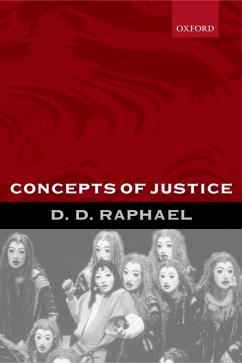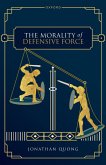In Concepts of Justice D. D. Raphael gives a philosophical survey of the development of the idea of justice. While the framework is historical, the aim is philosophical analysis and criticism. Part I begins with 'Ancient Roots': justice in the Bible, in Aeschylus' Oresteia, in the philosophers Plato and Aristotle, and among jurists and theologians in the Middle Ages. Part II, 'Modern Shoots', deals with philosophers from Hobbes to Rawls, and others of the modern age. Some of the writings considered will be unfamiliar to many readers, who will find that eminence as a political theorist is neither a necessary nor sufficient condition of significant thought about justice. Part III, 'Historical Fruits', draws some conclusions from the whole survey, pinning down the notion of fairness, and asking why this notion embraces apparently disparate ideas, notably 'merit' and 'need'. The developing role of justice and the emergence of novel features during the last three centuries is also discussed. Raphael does not assume that the theories of philosophers must reflect the thought and usage of people generally: some do while others are idiosyncratic, and a number of philosophers neglect the usage of the concept in the context of law. While this book is not a comprehensive history, it is comprehensive in its scope.
Dieser Download kann aus rechtlichen Gründen nur mit Rechnungsadresse in A, B, BG, CY, CZ, D, DK, EW, E, FIN, F, GR, HR, H, IRL, I, LT, L, LR, M, NL, PL, P, R, S, SLO, SK ausgeliefert werden.









